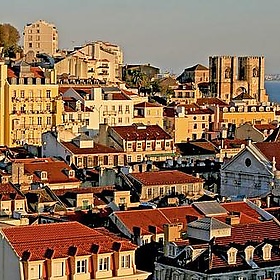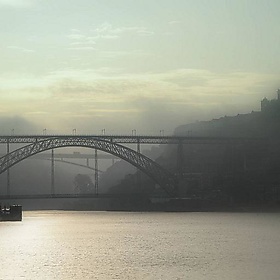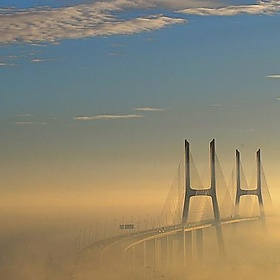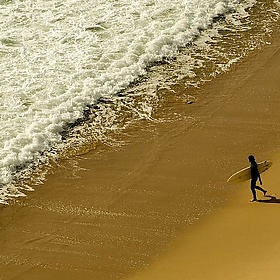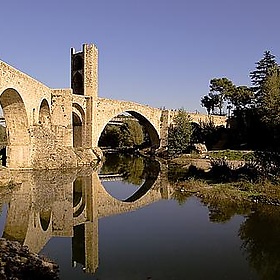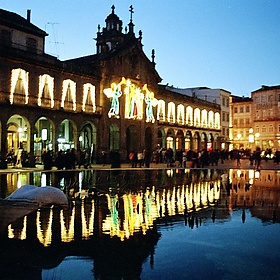Portugal
Portugal is a country located in southwestern Europe on the Iberian Peninsula. Portugal is the westernmost country of Europe, and is bordered by the Atlantic Ocean to the west and south and by Spain to the north and east. The Atlantic archipelagos of the Azores and Madeira are part of Portugal.
The land within the borders of today's Portuguese Republic has been continuously settled since prehistoric times. In 29 B.C. the territory was occupied by the Gallaeci and the Lusitanians when it was integrated in the Roman Empire as the provinces of Lusitania and part of Gallaecia. Roman settlers strongly influenced Portuguese culture, particularly the Portuguese language, mostly derived from Latin. In the 5th century, after the fall of the Roman empire, it was occupied by several Germanic peoples, mainly the Suevi and the Visigoths. In the early 8th century Muslim Moors conquered those Christian kingdoms, occupying most of the Iberian Peninsula.
In the 15th and 16th centuries, as the result of maritime exploration, Portugal established a global empire that included possessions in Africa, Asia, Oceania and South America, becoming one of the world's major economic, political and military powers.
In 1580, after a succession crisis it was united with Spain for a period called the Iberian Union; however in 1640 it re-established full independence during the Portuguese Restoration War that resulted in the establishment of a new dynasty and a return to the previous separation between the two empires.
The 1755 Lisbon earthquake, Spanish and French invasions, and Brazilian independence, resulted in both the disruption of political stability and economic growth and the reduction of Portugal's international status as a global power during the 19th century. After the overthrow of the monarchy in 1910, a democratic but unstable republic was established that was then replaced by the "Estado Novo" dictatorship. After the Portuguese Colonial War and the Carnation Revolution in 1974, democracy was restored and the country handed over its last overseas provinces (most prominently Angola and Mozambique in Africa); the last overseas territory, Macau, was handed over to China in 1999.
Portugal is a developed country with an advanced and high-income economy, with a very high Human Development Index and it has the world's 19th-highest quality-of-life.
Why visit?
- Portuguese cuisine is renowned for its fresh seafood, hearty stews, and delicious pastries. From the famous pastel de nata to the traditional bacalhau.
- Portugal is known for its stunning beaches, from the Algarve in the south to the beaches of the Azores in the north. Whether you're looking for a relaxing beach holiday or an adventure-filled surf trip.
- Portugal is home to some of the oldest cities in Europe, such as Lisbon, Porto, and Coimbra. These cities are full of history and culture, and offer a unique experience for visitors.


